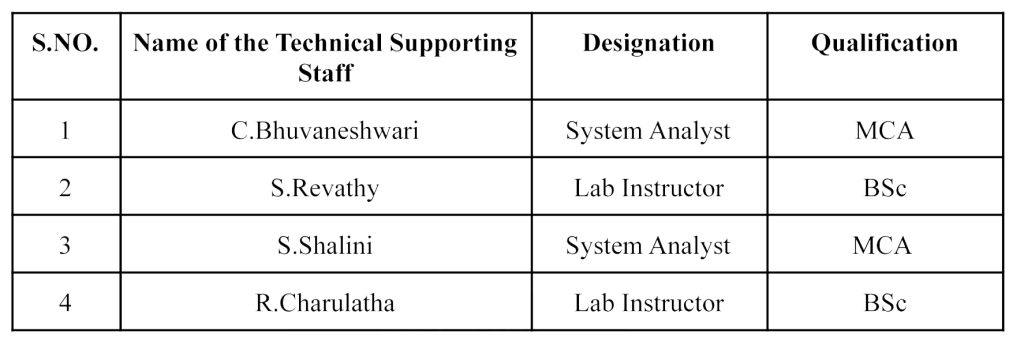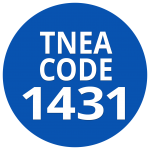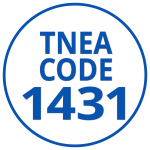| S.No | Faculty Name | Designation |
| 1 | Dr. P.B.EDWIN PRABHAKAR | Professor/Head |
| 2 | Dr. AHILA.R | Professor |
| 3 | Dr.G.SIMI MARGARAT | Professor |
| 4 | Dr.G.B.SANTHI | Professor |
| 5 | Ms.D.R.ANITA SOFIA LIZ | Assistant professor |
| 6 | P. KAVITHA | Assistant Professor |
| 7 | V.THIRUMANI THANGAM | Assistant professor |
| 8 | R.MONISHAJOTHI | Assistant professor |
| 9 | P.BHUVANESWARI | Assistant Professor |
| 10 | R.CHARULATHA | Lab Instructor |
The department of computer science and engineering was established in the year 2008. Computer science and engineering play a major role to learn about computer systems and the way humans and computers interact from a scientific perspective. Instruction includes the theory and design of hardware and software. NPSB CET concentrates on bridging theory and practice, including a wide variety of hardware and software technologies and their applications and build the students with the latest technologies. Tests are conducted in a regular intervals and the students are counselled and motivated to bring out their best performance.
The department has well equipped computing laboratories with Pentium PCs and a rich repository of software covering a wide spectrum of applications. The department conducts Lab sessions such as DBMS Lab, Programming Languages Lab, Network Programming Lab, Data structure, Operating system lab, Software system development lab , Visual programming ,OOAD lab ,Internet programming lab etc., to train the students in order to face the competition in the IT field.
The department has the following well equipped laboratories:
- Data Structures Lab
- Operating Systems Lab
- Database Management Systems Lab
- Networks Lab
- Case Tools Lab
- Service Oriented Architecture(IT)
- Internet Programming
- Database Management System(IT/CSE)
- Object Oriented Analysis and Design
- Operating system
- Programming and Data Structure Laboratory II(IT/CSE)
- Web Technology(IT)
- Case tools (IT)
- Free Open Source Lab
The departments of computer science and engineering and Information technology organized the national level technical symposium named “TECHCENDIO“” on 4th September 2015. The symposium was inaugurated by Mr.Pattabiraman Krishnaswamy along with the presence of our respected Principal, Director, Vice Chairman and Chairman. The chief guest delivered a valuable speech for the gathering. A total of 5 events were conducted where each participant showcast their talent and skills inorder to gain the winners glory.
Events organised in the symposium were Paper Roast, CodeSeeker, Brainy-Bee, Re-Spawn, and Dumb-C. The department also released a magazine named “TWINZINE 2K15” by the students and faculty members. Winners are recognized with certificates and awards. The department also plans to introduce two more events such as video making and photoshop contest in near future. The students also participated in their internship programs in HCL career development centre, UNIQ technologies, L&T construction etc.,
To foster competent professional with ethical codes and make them technologically adept, self-motivated and socially responsible innovators.
M1: To stimulate challenging professional by imparting proficient education and the zest of higher studies.
M2: Provide learning ambience to generate innovative and problem-solving skills with professionalism.
M3: To imbibe leadership quality, there by making them expertise in their career.
M4: To inculcate independent and life long learning with ethical and social responsibilities.
M5: To prepares highly qualified, sought-after and technical intelligent strategists who can expand the effectiveness.
The Program Educational Objectives (PEO’S) are
PEO1: | To provide graduating students with core competencies by strengthening their mathematical, scientific, and engineering fundamentals there by pursue higher education and research or have a successful career in industries associated with Computer Science and Engineering, or as entrepreneurs. |
PEO2: | To train graduates in diversified and applied areas with analysis, design, and synthesis of data to create novel products and solutions to meet current industrial and societal needs. |
PEO3: | To promote collaborative learning and spirit of teamwork through multidisciplinary projects and diverse professional activities. Also, inculcate high professionalism among the students by providing technical and soft skills with ethical standards. |
- Engineering knowledge:Apply the knowledge of mathematics, science, engineering fundamentals and an engineering specialization to the solution of complex engineering problems.
- Problem analysis: Identify, formulate, review research literature, and analyze complex engineering problems reaching substantiated conclusions using first principles of mathematics, natural sciences, and engineering sciences.
- Design/development of solutions: Design solutions for complex engineering problems and design system components or processes that meet the specified needs with appropriate consideration for the public health and safety, and the cultural, societal, and environmental considerations.
- Conduct investigations of complex problems: Use research-based knowledge and research methods including design of experiments, analysis and interpretation of data, and synthesis of the information to provide valid conclusions.
- Modern tool usage: Create, select, and apply appropriate techniques, resources, and modern engineering and IT tools including prediction and modeling to complex engineering activities with an understanding of the limitations.
- The engineer and society: Apply reasoning informed by the contextual knowledge to assess societal, health, safety, legal and cultural issues and the consequent responsibilities relevant to the professional engineering practice.
- Environment and sustainability: Understand the impact of the professional engineering solutions in societal and environmental contexts, and demonstrate the knowledge of, and need for sustainable development.
- Ethics: Apply ethical principles and commit to professional ethics and responsibilities and norms of the engineering practice.
- Individual and team work: Function effectively as an individual, and as a member or leader in diverse teams, and in multidisciplinary settings.
- Communication: Communicate effectively on complex engineering activities with the engineering community and with society at large, such as, being able to comprehend and write effective reports and design documentation, make effective presentations, and give and receive clear instructions.
- Project management and finance: Demonstrate knowledge and understanding of the engineering and management principles and apply these to one‘s own work, as a member and leader in a team, to manage projects and in multidisciplinary environments.
- Life-long learning: Recognize the need for, and have the preparation and ability to engage in independent and life-long learning in the broadest context of technological change.
- To analyse, design and develop computing solutions by applying foundational concepts of Computer Science and Engineering.
- To apply software engineering principles and practices for developing quality software for scientific and business application
Technical Supporting Staff

















